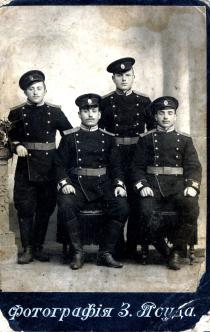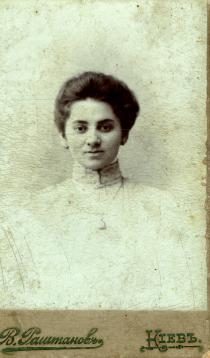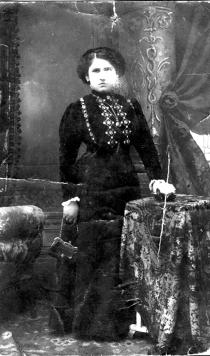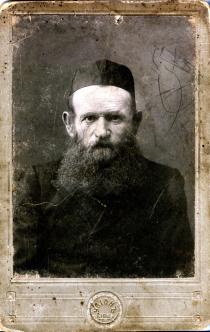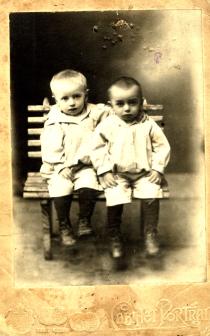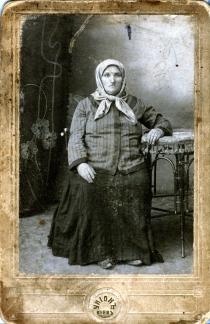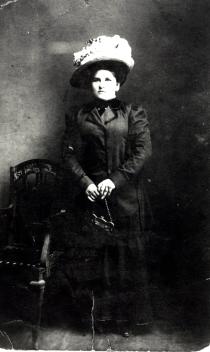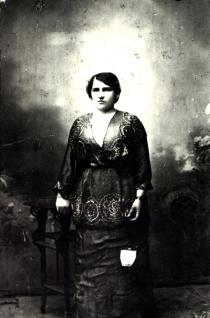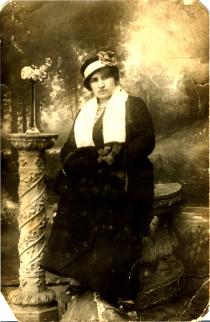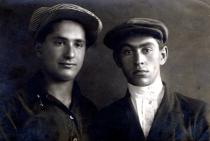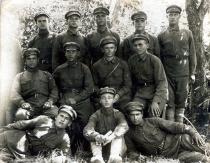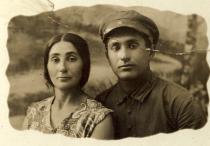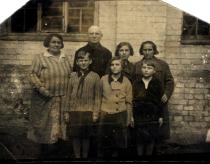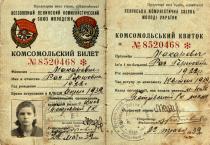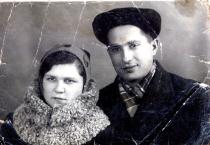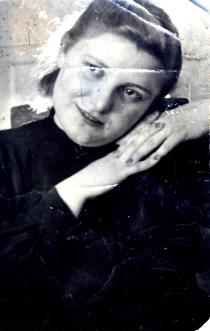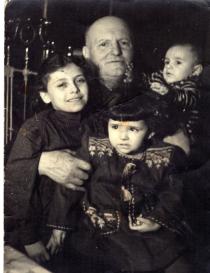My father, Gersh Makarevich, is the first on the right. In this picture he is with his comrades during his service in the tsarist army in Nikolskiy, Ussuriyskiy Territory (Russia).
My father, Gersh Peisah-Aizekovich Makarevich, was born in Kiev in 1886. He became an orphan at the age of 12. I know nothing about his parents. I know he had a brother – Naum, who lived in Podol, Kiev, with his family. I don’t remember Naum; he died at an early age. His son, Mikhail Makarevich (my cousin), perished during the war. He was part of the River Fleet and was involved in the evacuation of women and children. He perished during an air raid on the Dnieper. My father, being an orphan, became a butcher’s apprentice and later started working at a butcher’s shop. During the First World War, my father was a private in the tsarist army. He served for a period in Ussuriysk. He was photographed while there and sent the picture to my mother – they had met by then. He was wounded and sent to a hospital in Moscow. Mamma went to Moscow to take care of him. Given the period, this was a bold step as they weren't yet married. Once Father recovered he returned to Kiev and got a job with the same butcher. My father and mother got married soon after, in 1917.
They had a traditional Jewish marriage in a synagogue. They observed all the rituals, and there was chuppah. My father was a very religious man. My father and mother always went to the synagogue on Saturday. He always prayed - donning the tallit right up until the end of his life. He died in 1972. Mamma said his time serving in the tsarist army had been a trial for him, he hadn't wanted to join. But he didn’t have parents, so he had nobody to stand up for him. And so he had no choice.
In the early 1920s, during NEP [New Economic Policy], Daddy worked in a big butcher shop. We were living the good life then; my parents could afford to pay for a big apartment, we had good food and clothes. After NEP, my father worked in an ordinary, state-owned store and our life became more complicated. But still, we were an average family. We were not poor.
We lived in Podol, near the synagogue, and my parents went there every week. When Father couldn’t go to the synagogue, he prayed at home.

